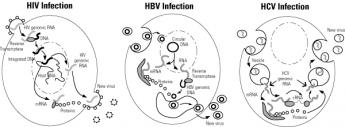Related Topics
Tammany Hall Origins
Is our court system getting better from the top down, or worse from the bottom up?
Right Angle Club 2017
Dick Palmer and Bill Dorsey died this year. We will miss them.
College for Prison Inmates

|
| Marjorie G. Jones |
The Right Angle Club was honored to have the wife of one of its members, Marjorie G. Jones wife of Jonathan Jones, as its speaker at a recent Friday lunch meeting. Both are Quakers, as you might expect from couples with those names. Marjorie told us of her interesting experiences with a typical Quaker concern, supplying college education to incarcerated prisoners.

|
| Graterford Prison |
In this case, she was not acting as a J.D., which she also is, but rather as a teacher, teaching college-level History at Graterford Prison to sure-enough felons, under the auspices of Villanova University, and before that, at Sing-Sing Prison. Pennsylvania comes out looking rather shabby by comparison with New York in these matters, an example of which is the Pennsylvania Law that no one may teach Social Science except with a Ph.D. degree, even though they have a J.D. as she does. Similarly, there are four thousand prisoners in Graterford, while the much more famous Sing-Sing has only seventeen hundred. Pennsylvania hates to blow its own horn, even when the subject is fairly non-glamorous. It even goes as far as spell-check, which never heard of Graterford, but has no trouble recognizing Sing-Sing, up alongside the Hudson River, in Ossining, NY -- which is only half as large.

|
| Eastern Penitentiary |
The Quakers of Pennsylvania conceived of Eastern Penitentiary, whose central theme was solitary confinement, hoping in the Quaker tradition for the calming effect of silence to soothe the prisoner into remorseful rehabilitation. Most Quakers would not see quiet reflection as a punishment, but the rest of the world under the leadership of Charles Dickens no less saw it as hideous torment, cruel and unusual punishment. Most Quakers will tell you they rather enjoy an hour of silence.
Ever since their own imprisonment in the 17th Century, the Quakers have had a particular interest in helping the plight of the incarcerated. The rest of the world may yet turn away from prison as a punishment, because prisons are so expensive, costing more than it costs to go to Harvard, and having an incidence of recidivism close to 65%, plus nearly universal drug use. The Quakers, seeing That of God in every man, specialize in giving college degrees to inmates, and have a recidivism rate of around 1%. Mrs. Jones frankly admits there are some people in stir who deserve to be there and would be a hazard to society if released. Pennsylvania has little sympathy with "visitation" rights, which are greatly enjoyed by New York prisoners, while Pennsylvania is more attracted to privately operated prisons, with their incentive for welcoming more prisoners the better.

|
| HIV (AIDS) and Hepatitis B, Hep C |
A week ago, a new development clouded the issue of what should be done about the punishment of crime. For twenty years, we have had a cheap simple test to demonstrate the existence of Hepatitis C, but no acceptable treatment. Like HIV (AIDS) and Hepatitis B, Hep C seems to have got its start in homosexual males, and gradually spread into the rest of the community by "dirty needles" in the intravenous drug world. The first two are coming under control with new drugs and vaccines, but Hep C just festers on, and eventually kills the victim with cirrhosis. But last week, the whole matter changed with the announcement of twenty new drugs with more than 95% cure rate in three months, and unfortunately a $65,000 price tag per patient. That's about $150 billion for the known cases clustered around penniless American prisoners, to say nothing of what might immigrate from abroad. There are about 30 million American residents intentionally excluded from those federal programs Congress is now wrangling about, including several million incarcerated prisoners. If even the Obama administration didn't know what to do with prisoners' health costs, it isn't easy to see a federal solution to it, and since the states are overwhelmed by health costs already, they won't likely be eager to add to them, either.
Because we had a test for Hepatitis C for twenty years before we had an effective treatment for it, patient identity is pretty well classified. It will become glaringly evident that the people who don't have the disease will be forced to pay for those who do, and those who do will already have all of the common characteristics for being discriminated against -- black, male, convicted homosexual criminals, to which must now be added the accusation of spreading disease. The prisoners are mostly destitute, and Hepatitis C is contagious to the rest of the population.
On the other hand, it is simply unthinkable to turn these patients loose untreated, no matter what other foreign nations may be bold enough to try. The "solution" is apt to revolve around forcing the drug companies to lower prices as a punishment for curing a disease, and the rest of the population to suffer more taxes. Unfortunately, this is apt to concentrate public ire on criminal violators, homosexuals, drug addicts, immigrants, and black people. It is also apt to stimulate a desire to eliminate prisons by constraining their budgets even further below humane standards. You can expect Congressional hearings about the failure of competition to lower prices, and indeed it really is unlikely that twenty drugs would spontaneously make an appearance overnight, achieving a 95% cure rate, all at the same time. More likely, the manufacturers hoped to recover their investments, before the disease disappeared. But somebody is likely to get flogged, perhaps ejecting prisoners from jail back toward the whipping post, perhaps by looking for deeper pockets within the pharmaceutical industry.
Originally published: Friday, April 07, 2017; most-recently modified: Tuesday, April 30, 2019